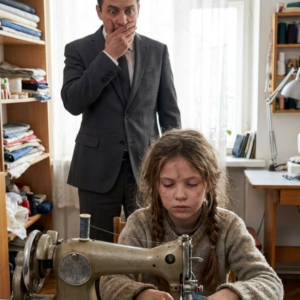Jimmy Kimmel Suspended After Remarks About Trump and Charlie Kirk — Ben Stiller and Obama Speak Out as Fallout Deepens
The fallout from late-night host Jimmy Kimmel’s controversial comments about Donald Trump and the late Charlie Kirk has spiraled into one of the most polarizing media controversies of the year. What began as a sharp monologue on Jimmy Kimmel Live! has now exploded into a storm of political outrage, celebrity commentary, and debates over free speech, cancel culture, and the boundaries of comedy in times of national tragedy.
At the heart of the uproar is the suspension of Kimmel’s show, a move that stunned Hollywood insiders and ordinary viewers alike. The decision by ABC and Nexstar Media has been praised by some as a necessary response to an insensitive moment, but condemned by others as a dangerous capitulation to political pressure. Now, with figures like Ben Stiller and former President Barack Obama weighing in, the controversy has grown far bigger than late-night television.
Kimmel’s Monologue and the Breaking Point
On September 10, conservative activist and podcaster Charlie Kirk was fatally shot in the neck while speaking at a college debate at Utah Valley University. The killing sent shockwaves through political circles and beyond, with reactions pouring in from both sides of the aisle. The suspected shooter, 22-year-old Tyler Robinson, was arrested two days later and charged with seven counts in connection with the assassination, including capital murder — charges that prosecutors have suggested could carry the death penalty.
For late-night television hosts, tragedies often become moments for both commentary and satire. On his next show, Jimmy Kimmel addressed Kirk’s murder, but it was his segue into Donald Trump’s reaction that ignited fury.
Kimmel rolled a clip of President Trump speaking to reporters outside the White House after Kirk’s death. Asked how he was doing in the wake of the killing, Trump answered bluntly: “I think very good.” He then pivoted into a tangent about the White House’s ballroom reconstruction.
Seizing on the oddity of the moment, Kimmel quipped: “Yes, he’s at the fourth stage of grief, construction. Demolition, construction. This is not how an adult grieves the murder of someone he called a friend. This is how a 4-year-old mourns a goldfish, okay?”
The line drew laughter from his studio audience but immediate condemnation from critics who viewed it as trivializing Kirk’s death and mocking Trump’s response at a time of mourning. Kimmel continued, calling out what he saw as hypocrisy in the aftermath: “We hit some new lows over the weekend with the MAGA gang desperately trying to characterize this kid who murdered Charlie Kirk as anything other than one of them and doing everything they can to score political points from it.”
To his detractors, this was a step too far.
ABC and Nexstar Pull the Plug
Within hours of the broadcast, backlash poured in. Social media lit up with calls for Kimmel’s firing, while conservative commentators accused him of insensitivity and bias. By the following day, ABC issued a rare statement:
“Jimmy Kimmel Live will be pre-empted indefinitely.”
The announcement was soon followed by Nexstar Media — a powerhouse of local broadcasting affiliated with ABC — which declared it would no longer air Kimmel’s show “for the foreseeable future beginning with tonight’s show.”
Andrew Alford, president of Nexstar’s broadcast division, elaborated: “At a critical time in our national political discourse, we believe Mr. Kimmel’s comments were offensive and insensitive. Out of respect for the family of Mr. Kirk and the seriousness of this moment, we cannot continue airing his program at this time.”
The swift suspension stunned many observers. While late-night hosts have often sparked controversy with pointed jokes, rarely has a major network sidelined a flagship talk show in response.
Ben Stiller and Celebrity Reactions
Among the first high-profile voices to jump into the debate was actor and director Ben Stiller. Known for his work in Zoolander and Tropic Thunder, Stiller cut directly to the point in a brief but forceful post on X (formerly Twitter): “This isn’t right.”
Though he didn’t expand further, his statement was widely interpreted as a defense of Kimmel and a critique of what many view as creeping censorship. Stiller’s remark resonated especially with Hollywood colleagues who see comedy as a vital tool for social commentary, even when it risks offending.
Other celebrities soon weighed in. Some defended Kimmel’s right to satirize political figures, noting that Trump himself has long dished out sharp insults without restraint. Others argued that mocking the circumstances of a murder — especially one tied to such a divisive political figure — crossed a line.
Obama Enters the Debate
The controversy escalated further when former President Barack Obama publicly condemned the suspension, framing it as a dangerous escalation of government influence over media companies. In a widely shared social media post, he wrote:
“After years of complaining about cancel culture, the current administration has taken it to a new and dangerous level by routinely threatening regulatory action against media companies unless they muzzle or fire reporters and commentators it doesn’t like. This is precisely the kind of government coercion that the First Amendment was designed to prevent — and media companies need to start standing up rather than capitulating to it.”
Obama’s intervention reframed the debate. No longer was the story just about one late-night comedian’s controversial jokes — it became about free speech, political power, and the role of media in a democracy. His comments drew fierce pushback from conservatives but galvanized defenders of Kimmel who view the suspension as a slippery slope.
Trump’s Reaction: “Great News for America”
For Trump, the suspension was cause for celebration. Posting on his platform Truth Social, the President hailed the decision as “great news for America,” further fueling the perception that political pressure may have influenced ABC and Nexstar. His supporters echoed the sentiment, portraying the moment as a rare victory against what they see as a hostile liberal entertainment industry.
A Nation Divided Over Comedy and Free Speech
The controversy around Kimmel underscores a broader cultural divide in America. To some, his monologue was a tasteless misstep that deserved consequences. To others, it was an example of satire doing what satire has always done — exposing hypocrisy and making people uncomfortable.
The suspension also raises deeper questions:
- Should comedians be punished for jokes, even if offensive, when directed at political leaders?
- Do networks have a responsibility to protect free expression, or to protect viewers from perceived insensitivity?
- And how much influence should political leaders wield over the fate of media figures who criticize them?
These are not new debates, but the high-profile nature of Kimmel’s case ensures they will linger for months to come.
What Comes Next
As of now, Jimmy Kimmel himself has not issued a statement. Whether he chooses to apologize, clarify his intent, or remain silent could determine how the controversy develops. ABC, meanwhile, faces mounting pressure from both sides: conservatives demanding accountability, and liberals warning against censorship.
If history is any guide, Kimmel’s suspension may not be permanent. Late-night hosts from Bill Maher to David Letterman have faced controversies before, sometimes resulting in backlash but rarely in career-ending consequences. Still, in today’s politically charged climate, every misstep is magnified, and the stakes are higher than ever.
For now, one thing is certain: what began as a late-night joke has become a flashpoint in America’s ongoing struggle over comedy, free speech, and the boundaries of political discourse.





